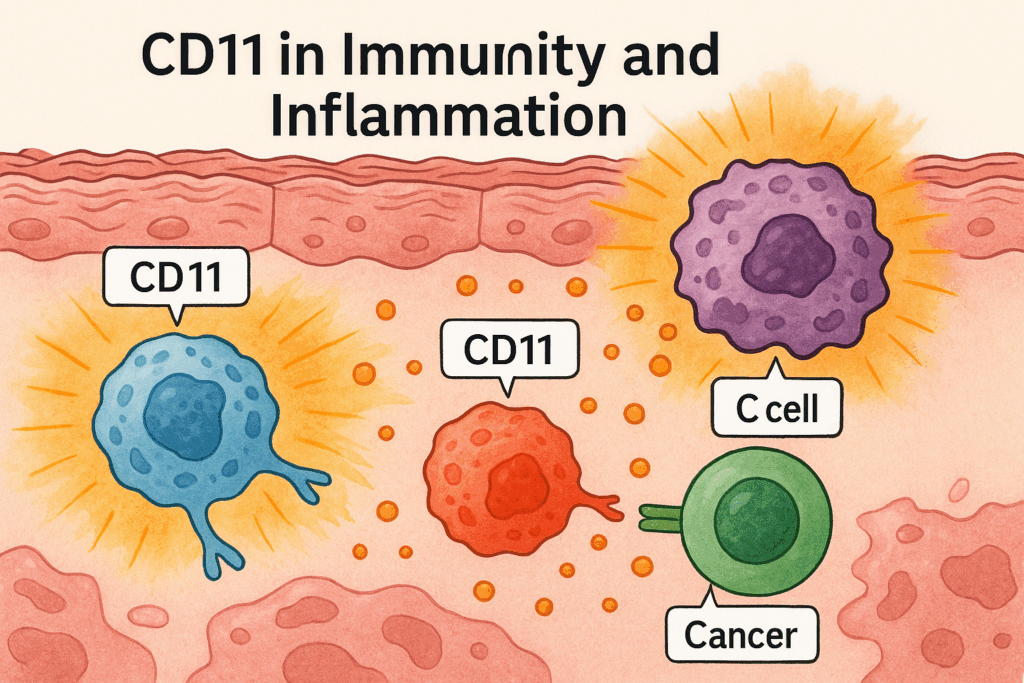Blog Post
CD11 and Its Role in Immunity and Inflammation
CD11 in immunity and inflammation is an increasingly important area of study in biomedical research. As a key integrin protein, CD11 facilitates immune cell adhesion, migration, and communication during immune responses. Found on neutrophils, monocytes, macrophages, and dendritic cells, CD11 plays a significant role in how the body responds to infections, cancer, and chronic inflammation.

What Is CD11?
CD11 is part of the integrin family of transmembrane receptors. It pairs with CD18 to form heterodimeric complexes such as LFA-1 (lymphocyte function-associated antigen 1), Mac-1, and p150,95. Each CD11 isoform (CD11a, CD11b, or CD11c) defines the specific integrin complex and its function. These integrins are responsible for mediating adhesion between immune cells and endothelial tissues, promoting immune surveillance and response.
Roles in Inflammation and Disease
CD11 in immunity and inflammation has several essential functions:
- Leukocyte Adhesion and Migration: CD11/CD18 integrins bind to endothelial ligands like ICAM-1, enabling immune cells to exit blood vessels and move into tissues.
- Pathogen Clearance: CD11b supports phagocytosis and removal of microbes and dying cells.
- Autoimmune Disease: Abnormal CD11 signaling is linked to autoimmune disorders such as lupus, rheumatoid arthritis, and multiple sclerosis.
- Cancer Immunology: CD11b+ myeloid-derived suppressor cells (MDSCs) inhibit T cell responses and contribute to tumor progression, making CD11 a target of interest in oncology.
Diagnostic and Research Applications
CD11 is commonly used in research and clinical diagnostics:
- Assesses immune cell activation and trafficking in infection and autoimmune models.
- Identifies MDSCs, macrophages, and dendritic cells in cancer research.
- Facilitates cell sorting and characterization in flow cytometry workflows.
Advantages of Targeting CD11 in Research
- Broad Marker for Myeloid Cells: CD11b and CD11c reliably mark key immune cell populations.
- Therapeutic Target Potential: CD11 modulation is under investigation for regulating inflammation and enhancing cancer immunotherapy.
- Versatility in Assays: CD11 antibodies are available in multiple formats for ELISA, IHC, and multicolor flow cytometry panels.
Further Reading:
- Springer, T.A. (1994). Traffic signals for lymphocyte recirculation and leukocyte emigration: The multistep paradigm. Cell, 76(2), 301–314. https://doi.org/10.1016/0092-8674(94)90337-9
- Condamine, T., et al. (2015). Tumor-induced immune suppression by myeloid-derived suppressor cells. J Immunol, 194(4), 2030–2037. https://doi.org/10.4049/jimmunol.1402653
Internal Links:
- See also: CD10 and Its Role in Immune Regulation
- Related: Flow Cytometry for Immune Profiling

